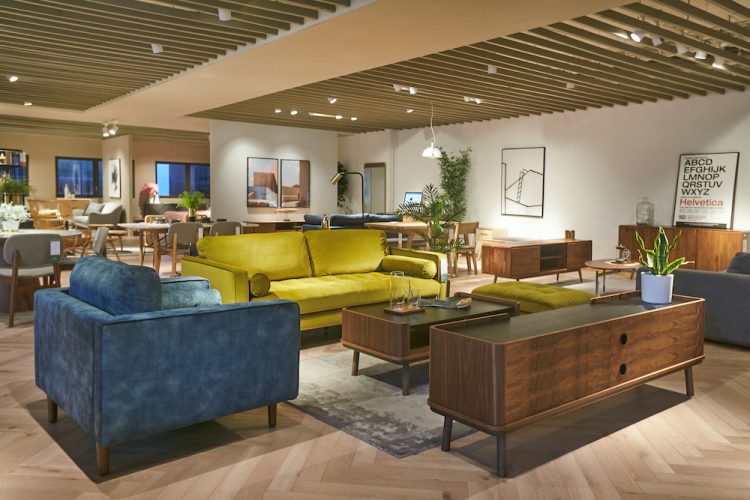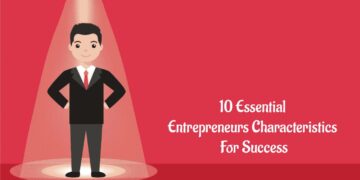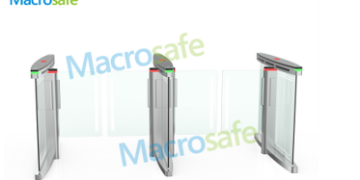Declan Ee always had an interest in entrepreneurship. Before he co-founded local furniture startup Castlery, he ran several small businesses, including a graphic design company which he started up with a friend while enlisting in National Service.
Despite having passion in the business world and a Bachelor’s degree in law, Declan had a colourful job history in the banking sector. He reasoned that he had an interest in understanding how corporate financing worked at a global scale for MNCs, and figured that there was no better place to be exposed to it than in the fast-paced world of investment banking.
After graduating university, he worked as an investment banker at Lehman Brothers in London before returning to Singapore in 2010 to work in the Asia equities division of Nomura, a global investment bank that acquired the European and Asian arms of Lehman Brothers after its collapse.
He was later hired to expand the Asian equities presence of US investment bank Jefferies, but eventually left the industry for good in 2016 to focus on growing Castlery.
Its goal is to make quality and aesthetic furniture affordable
Declan started up Castlery in 2013, along with three other co-founders: Fred Ji, Zhou Zhiwei and Travers Tan.
Declan and Fred had first met in Singapore’s startup scene, when they were actively investing and working on different projects. They bonded over a shared passion of music and business, and eventually became good friends and business partners. The first couple of projects that they worked on together did not quite work out, but they knew they wanted to do something together.
Meanwhile, Zhiwei is Fred’s schoolmate and Travers is an acquaintance of Declan whom he met through a friend.
Castlery’s showroom in Singapore at Jit Poh Studio / Image Credit: Castlery
The idea of Castlery was propelled by the co-founders’ frustration with the lack of accessible, well-designed and quality furniture at an affordable price point.
We had an aesthetic in mind that was shaped by experiences such as traveling or living abroad, that wasn’t found in the market yet. We identified [this] gap in the market and decided to start Castlery.
By providing more [wallet-friendly] options, we also hope our customers realise that putting together an inspiring space that doubles up as a sanctuary is well within reach, and they no longer have to compromise on quality or aesthetic preferences.
– Declan Ee, co-founder of Castlery
Aged between 35 and 42, the four co-founders sit within their target demographic of urban millennials and have a first-hand understanding of their milestones, needs and challenges.
Declan added that their customer is at the centre of all decisions and processes and they engineer everything from the ground-up — from product range, customer experience, fulfilment and logistics management, to its marketing engagement.
“For example, many in the furniture industry are traders who take inventory of what is available from suppliers. We will make decisions based on the data we are seeing in the market on what our target customers are buying and what they need. “
“We will then re-engineer the products from scratch to ensure they are unique and have the best mix of materials with the right process of assembling them. With our network of logistics partners, we will figure out the most efficient way to get the product to our customers. We have an edge over fellow direct-to-consumers home furnishing brands, with our ability to have total oversight of the entire design and build process.”
Conquering business challenges: Then vs now
“When we first started in Singapore, the main challenge for us — as people with no background in furniture-making — was understanding the industry and the business,” shared Declan.
They had to get connected with the “right” suppliers, and learning about product, logistics and fulfilment alone took up the first four to five years, and it has been a continual learning journey as they seek to further improve themselves.
The second big challenge — which is the same in any business — is that of people and financing. Banks were not willing to give us working capital lines, and we struggled to attract the right people. There were many times in the early days where we were one to two months away from a liquidity crunch, and it was a real struggle at times to get through those periods.
– Declan Ee, co-founder of Castlery
Now, their biggest business challenge is learning to globalise the business. They quickly learnt that it’s not a one-size-fits-all solution, and they had to adapt and adjust accordingly to cater to different markets.
They first ventured overseas to Australia in 2017 because it was the closest English-speaking international market, which also has a market size that’s 10 times bigger than Singapore.
They also saw it as a “stepping stone” into larger markets like the US, but the expansion into Australia came with many challenges.
“We applied the same model we used for Singapore, which is small enough for the online-to-offline (O2O) strategy, but (it) was not the best approach for Australia.”
They realised that they also didn’t choose a strategic location for their offline experience centre in Sydney, and failed to design their product range according to this new set of target customer demographic.
“It resulted in 2.5 years of hardship where we really struggled to scale the business in Australia. This turned around after we decided to regroup, shut down the store (to) focus more (on) online, and launch products more tailored to the needs of our customers,” said Declan.
 Castlery’s pop-up store in Sydney, Australia / Image Credit: Castlery
Castlery’s pop-up store in Sydney, Australia / Image Credit: Castlery
Today, Castlery has a 1,000 square feet pop-up in Australia. With a purely digital approach, it allows them to scale faster without heavy capital expenditure investment.
“It allows us to build up data, get our products to our target customer and understand their preference. One thing we strive to do at Castlery is to be customer-centric, and this gives us that edge faster,” he explained further.
Entering the US market
 Castlery’s warehouse in the US / Image Credit: Castlery
Castlery’s warehouse in the US / Image Credit: Castlery
Following its expansion into Australia, the co-founders decided to take a gamble and make its foray into the US market next, which is dubbed the “largest furniture market in the world”, valued at US$350 billion a year.
They centred their strategy around its targeted customers this time round, which bore strong results.
“We started with seven cities in 2020, and we expanded our footprint to the top 50 cities in the US by early 2022 due to strong demand. This gave us scale as a global business, which helped us across all functions — from negotiating with suppliers, getting working capital lines, working with global partners, and attracting the right talent,” shared Declan.
Recalling the words of one of their professors at Wharton as part of the Enterprise Singapore (ESG) Scale-Up Program, he shared that the most critical strategy when it comes to scaling the business is where you scale.
It is important to be present in the market with the largest total addressable market. With the data points, it was clear US was such a market, hence our determination to enter the market. With COVID-19, we were initially very concerned, but seeing the surge in demand as people stayed home, we decided to be aggressive and push ahead with the expansion.
Given the scale of the US, it allows us to zoom in and focus more on our target customers and develop best practices on how [to] best serve [them]. The key is to focus [on the US market] for the next three to five years.
– Declan Ee, co-founder of Castlery
So far, Castlery has experienced strong, positive growth across both Australia and the US, delivering 250,000 of their products to more than 100,000 homes globally in 2021.
That same year, Castlery was also named the fastest-growing digital furniture company in the US, with around 2,000 per cent increase in web traffic on Similarweb.
“We are proud to say that Castlery is now an international brand, and the US market has definitely contributed to a big part of our growth. It is our largest market, accounting for 60 per cent of our overall orders and it is now on track to grow to 80 per cent by this year.”
 Castlery team in Singapore / Image Credit: Castlery
Castlery team in Singapore / Image Credit: Castlery
Within just two years, Castlery is now servicing the top 50 metropolitan areas in the US. It also has a 250-strong headcount across six countries, up from just 90 pre-COVID.
“We [have spent] time understanding the industry and building the right foundations — this means iterating, making mistakes, and not getting caught up with raising funds and ‘playing the game’,” remarked Declan.
“Staying laser-focused on building strong foundations and growing the business [has indeed] paid off.”
Covid-19 is a double-edged sword
The aim of Castlery is to disrupt the traditional furniture industry, where there is inconsistent customer experience and long wait times for products, as well as lacking product options that are both well-designed and affordable.
“Most of the time, products that are low in price are also low in quality and/or design, and products that have better quality and/or design are too expensive,” observed Declan.
 Castlery’s factory in Vietnam / Image Credit: Castlery
Castlery’s factory in Vietnam / Image Credit: Castlery
“At Castlery, we are continuously working and finding ways to reduce the long planning cycle (the industry average is 12 to 18 months) from product design and material sourcing to product launch and delivery to customer; and making the supply chain and fulfilment more efficient, especially since furniture is bulky and relatively costly to transport.”
Unfortunately, COVID-19 brought about several headwinds and caused supply chain issues across the board. On the flipside, the pandemic has helped push their sales in both Australia and the United States.
While there were global logistical issues, it has also been a time of growth for the company and we [saw] our revenue grow sixfold during the pandemic, in part due to more people staying at home and embarking on their own home furnishing journeys, and consumers were also starting to shop online for bulky, large-ticket items.
– Declan Ee, co-founder of Castlery
During this pandemic period, the founders also observed that the meaning of home has shifted for most people, especially among the urban millennials. Homes have become “blended spaces for work, play and rest”, and home owners are keen to evolve their spaces accordingly to fit their needs.
This helped shape the company’s mission to be a go-to furniture brand for the next generation of urban millennials, and empower them to build a space they can thrive in by furnishing their milestones.
“It will be a dream for every urban millennial in the markets we are present in to have at least one Castlery piece in their homes,” said Declan.
Moving forward, Castlery’s immediate focus is to elevate its standing to that of an established global brand. To achieve this, Castlery will be deepening its investment and expertise in the core areas of product development, logistics and fulfilment, branding and customer experience.
Declan revealed that they have lined up several announcements and initiatives this year in line with this goal, but will only share more in the coming months ahead.
Featured Image Credit: Castlery
Source by vulcanpost.com






























